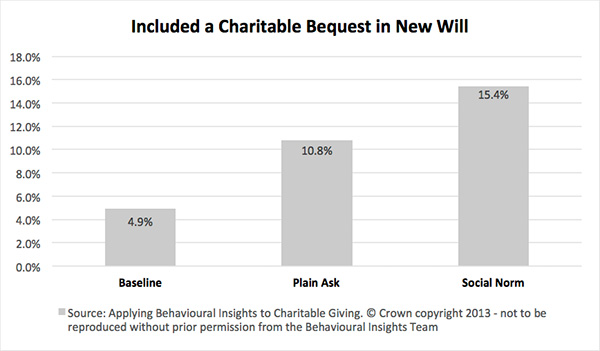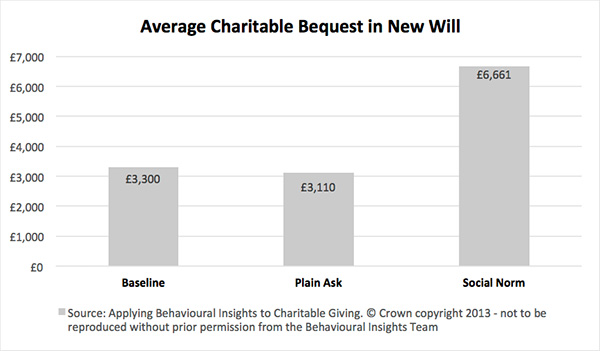
The Pentera Blog
Asking the Right Way Can Triple the Likelihood of a Bequest - And Double the Amount
People getting professional help writing their wills are three times as likely to include a charitable bequest - and make gifts twice as large - when they are presented with "social norm" encouragement: "Many of our clients like to leave money to charity in their wills. Are there any causes you're passionate about?"
Those are among the findings of a British study that conducted experiments with charities that led to an increase in bequests of about $1.5 million. The study, "Applying Behavioural Insights to Charitable Giving," was published by the Charities Aid Foundation and the Behavioural Insights Team of the British government's Cabinet Office.
In the 2013 study, a nonprofit that helps people write their wills divided British clients into three groups of 1,000 each: a baseline group of people who were not asked about a bequest; a group of people who were asked, "Would you like to leave any money to charity in your will?" (termed the "plain ask"); and a group of people who were asked the social norm question already presented above.
As shown in the graphs below, the "plain ask" doubled the number of bequests while the "social norm ask" tripled the bequest total. In addition, the "social norm ask" doubled the average amount of the bequests (add 50% to convert pounds to 2013 U.S. dollars).


"This clearly shows that simply asking people at the right moment whether they want to donate leads to a substantial increase in giving, and secondly that the way in which the question is asked is really important," the study concludes. "The results from these trials show how small changes can help charities and givers to support good causes."
This could be great information for planned gift officers to share with the estate-planning professionals they work with. The complete study, which included four other experiments that increased donations that weren't planned gifts, is available here.


